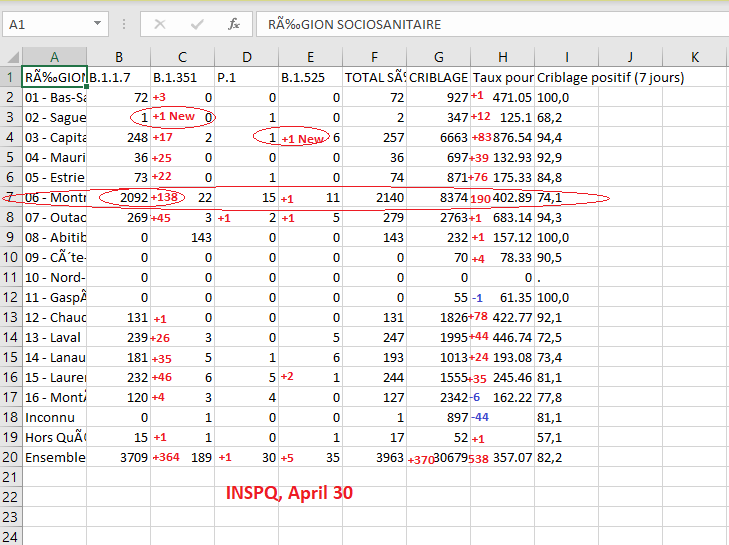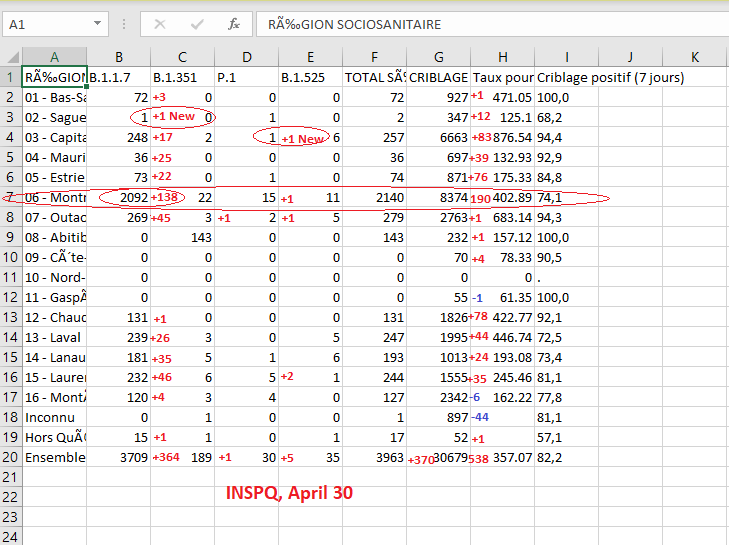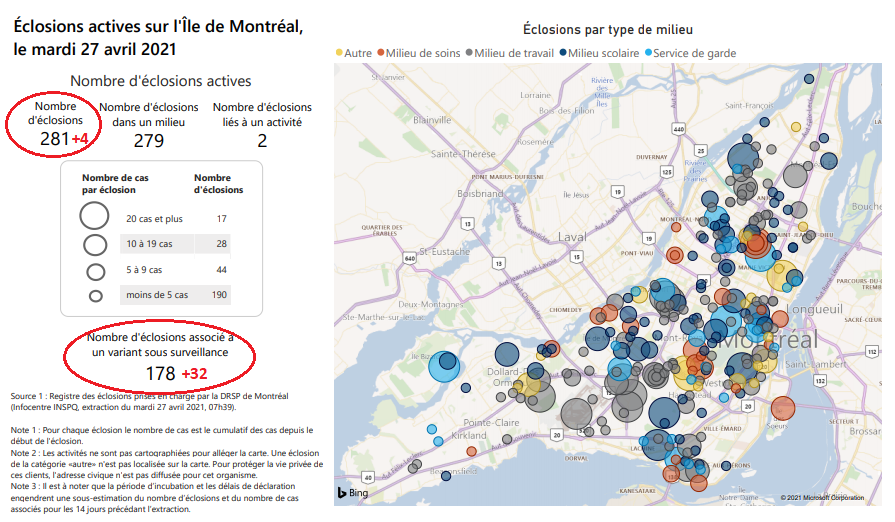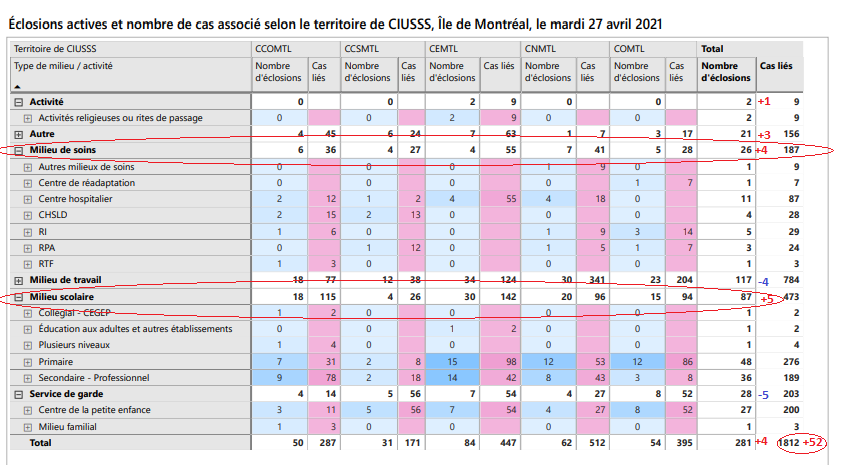
1) Quebec on Wednesday fell from second to third place in its #COVID19 vaccination rate among provinces, behind British Columbia. Surprisingly, Ontario is now in first place among provinces, as the chart below indicates. 

2) What’s more, nearly 24% of Ontario’s population is fully vaccinated compared with 18.86% in Quebec. Clearly, Quebec has a lot more to do to find ways for younger adults to get vaccinated, including the possibility of paid leave to workers seeking second shots.
3) Despite lower-than-expected vaccinations and #COVID19 testing, Montreal continues to report reassuring numbers under the direction of its apolitical head of public health, Dr. Mylène Drouin. The chart below shows a decrease of 30 #COVID19 outbreaks in the city since last week. 

4) What’s more, #COVID19 outbreaks fell for the second week in a row in every category in Montreal, as the chart below indicates. This is an unexpected development, because one would have anticipated at least one increase following the lifting of public health restrictions. 

5) Montreal on Thursday posted 44 #COVID19 cases. For context only: On the corresponding date last year, the city declared just 17 cases (amid even lower testing). The chart below suggests a new lower plateau of cases in the 20-to-40 range. 

6) Provincially, the number of #COVID19 outbreaks dipped by four to 139. The one troubling number was a doubling in of clusters associated with events, as the chart below reveals. This underscores the importance of continued mask-wearing and #PhysicialDistancing. 

7) With the school year ending officially on Wednesday, the number of active #COVID19 cases among students and staff dropped by 32 to 393 across the province. There were 33 fewer classes shuttered and one school that had closed temporarily reopened. 

8) Also Wednesday, Ontario reported 59 more Delta variant cases for a total of 975. So far, Quebec has reported a puzzlingly low 35 cases (half of which are Delta, half Kappa). This discrepancy alone between neighboring provinces calls for more vigilance in Quebec. End of thread. 

Addendum: I have decided to take some time off from writing this thread, given that I’ve been producing this nightly since March 19, 2020. I’ve written enough tweets to fill two books on #COVID19 in Quebec.
Addendum 2: This doesn't mean I believe the #pandemic no longer poses a threat. It still does. But along with mostly everyone else, I think it’s time to enjoy one’s vacation, which I'll do with my beloved family, starting tonight on the eve of la Fête nationale (also my b-day).
Addendum 3: When I return to work in the second week of July, I will tweet threads on the #pandemic as warranted. I expect the true test will come with the start of the school and university year in September. Thanks for all the support and keep the comments and questions coming!
• • •
Missing some Tweet in this thread? You can try to
force a refresh








